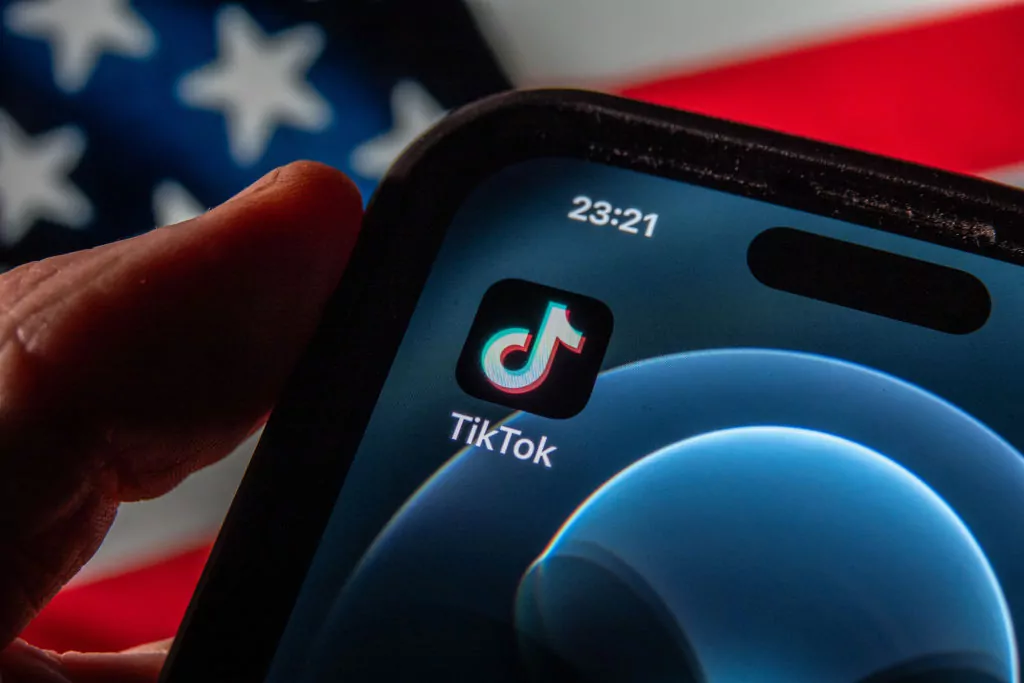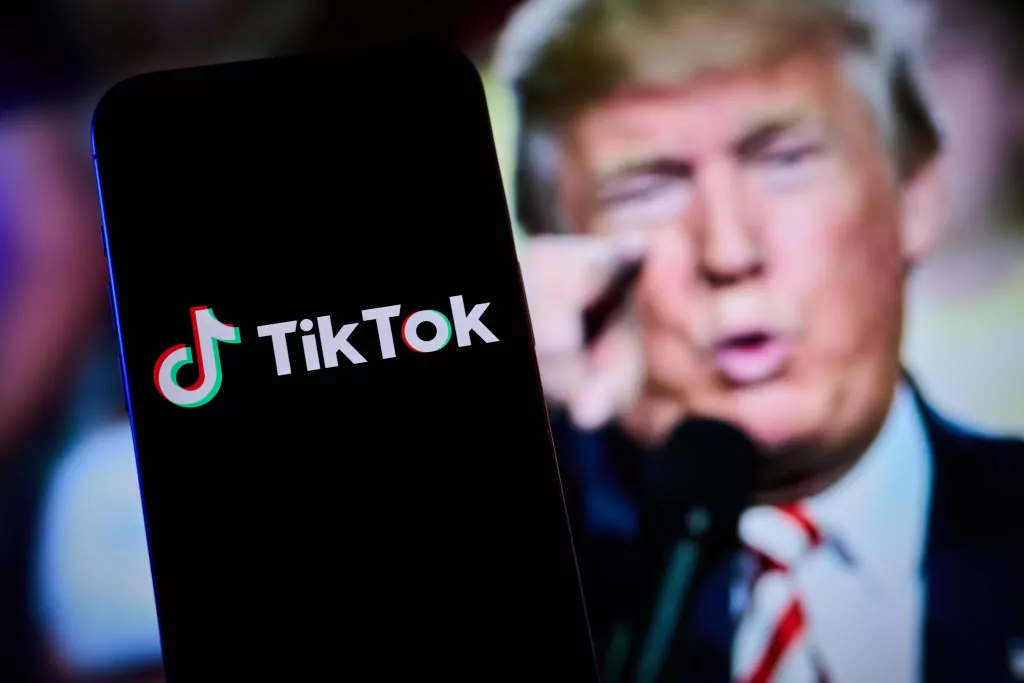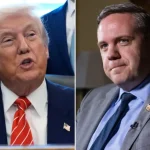
The Supreme Court will convene for a rare oral argument session on Friday to consider a set of landmark cases that could permanently alter the way millions of people consume online content.
TikTok, the video-based social media app used by more than 160 million users in the United States, faces an ultimatum to divest from its China-based parent company ByteDance or face a permanent U.S. ban, thanks to a bipartisan national security law signed by President Joe Biden. The law is set to take effect on Jan. 19, leading legal experts to believe the justices will have fewer than nine days to turn around a decision.

In an effort to avoid what some have called a sale-or-ban law, ByteDance and a group of content creators sued and argued that the law, the Protecting Americans from Foreign Adversary Controlled Applications Act, violates First Amendment rights by restricting access to the platform and its users’ speech.
President Joe Biden passed the law in April as his administration has stressed national security risks tied to ByteDance’s Chinese ownership, which it claims could enable Beijing to exploit TikTok for espionage, blackmail, or propaganda.
TikTok and its allies counter that the government has overstated these threats and ignored the broader implications for free speech, as more than 170 million Americans use the platform regularly.
“Rarely if ever has the Court confronted a free speech case that matters to so many people,” wrote Jeffrey Fisher, a lawyer who will be arguing at the lectern on Friday on behalf of individual content creators.
The First Amendment clashes with national security
TikTok, enjoyed by millions for its mix of viral dance trends, news clips, and zoomers rushing to repost the latest memes, has become a cultural touchstone that legal experts say make it a unique case.
Free speech advocates, including the American Civil Liberties Union, argue that the ban sets a dangerous precedent for regulating online platforms.
“To ban an entire communications platform used by tens of millions of Americans, the government must meet an extraordinarily high bar: It must show that the ban is the only way to prevent serious, imminent harm to national security, and that the ban limits no more speech than necessary to accomplish that purpose,” the ACLU wrote on its webpage.
TikTok’s legal team, led by former Trump administration Solicitor General Noel Francisco, contends the law unlawfully restricts speech, as even content deemed harmless—such as home-repair tutorials and vacation montages—would be swept up in the ban.
Yet, the platform’s popularity has drawn scrutiny from U.S. officials, who warn that ByteDance’s ties to Beijing pose significant national security risks.
Solicitor General Elizabeth Prelogar, representing the Biden administration, has stressed the urgency of addressing the risks. “No one can seriously dispute that the PRC’s control of TikTok through ByteDance represents a grave threat to national security,” she wrote in a filing last week.
Reagan, Obama, and Trump Judges Sided Against TikTok
A unanimous ruling from the U.S. Court of Appeals for the District of Columbia Circuit found the government’s concerns about ByteDance’s potential for data exploitation and content manipulation compelling. The panel, consisting of judges appointed by Presidents Ronald Reagan, Barack Obama, and Donald Trump, upheld the law. Judge Douglas Ginsburg noted that the law was “carefully crafted” to address foreign ownership without targeting domestic speech.
Chief Judge Sri Srinivasan emphasized that the law aligns with long-standing restrictions on foreign control of mass communications channels, stating Congress need not wait for China to exploit TikTok before taking preventive action.
Broader Implications and the Supreme Court’s Approach
The case carries implications beyond TikTok, addressing broader questions about regulating foreign-owned tech companies and balancing national security with free speech. The Supreme Court’s conservative majority may find the government’s arguments persuasive, particularly given Chief Justice John Roberts’ 2010 decision in Holder v. Humanitarian Law Project, which emphasized deference to government judgments on national security.

TikTok’s fate could also be influenced by political developments. President-elect Donald Trump, in an unusual twist, has urged the Supreme Court to delay implementing the ban until after his Jan. 20 inauguration, signaling his desire to negotiate a resolution that addresses security concerns while preserving the app.
Trump sports over 14 million followers on the app and has even suggested the platform contributed to helping younger voters fold into his “Make America Great Again” base during the 2024 election. Although he initially recognized the national security implications at stake when he first floated banning the app in 2020, he posted on social media in September that he would “save TikTok in America.”
Conversely, more legacy conservatives like former Senate Majority Leader Mitch McConnell (R-KY) and former Vice President Mike Pence have maintained the position that TikTok is a threat that should not be underestimated.
“TikTok is digital fentanyl, a 21st-century technological weapon being used by the Chinese Communist Party to target the American people,” Pence said in a statement to the Washington Examiner last month.
How are justices most likely to resolve this?
The Supreme Court is expected to focus on whether the law overreaches by effectively banning TikTok or strikes a reasonable balance by allowing the platform to operate independently of ByteDance.
Justices could promptly affirm the D.C. Circuit’s decision in a summary ruling, relying on Judge Ginsburg’s opinion, or reverse it, though that would require a more fully developed explanation of errors by lower courts, South Texas College of Law professor Josh Blackman wrote in a blog for Reason last month.
Alternatively, the court might issue a temporary injunction to allow time for a full written opinion or delay ruling on the petition for certiorari, forcing the Biden administration to decide whether to extend the compliance deadline, according to Blackman.
“If TikTok comes into compliance with the law,” such as a U.S. buyer purchasing the app, then “there is no need for the Court to resolve this issue,” Blackman said, noting there could be an outcome where the justices need not decide the case.
CLICK HERE TO READ MORE FROM THE WASHINGTON EXAMINER
“If somehow TikTok comes into compliance with the law, then Judge Ginsburg’s opinion will be vacated under Munsingwear and we can all forget this ever happened,” Blackman added, referring to the case law surrounding what to do with a lower court decision when a case becomes moot.
Additionally, the justices could simply not rule in a timely enough manner. If no decision is in by the evening of Jan. 18 and Biden has not extended the compliance deadline, then TikTok will likely suffer a temporary ban until a final decision is made.





